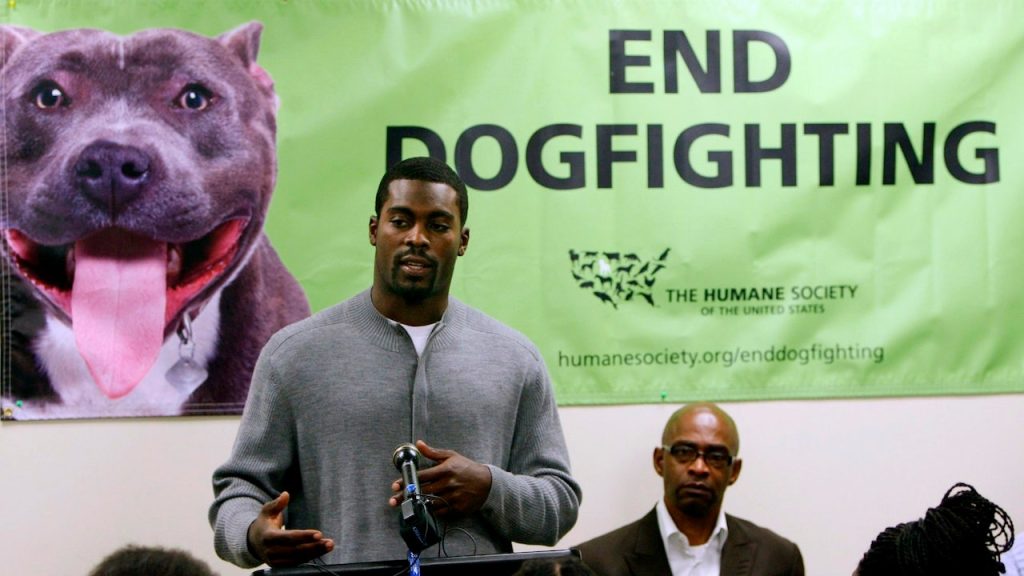Michael Vick’s Controversial Coaching Prospect and PETA’s Response
Michael Vick, a former NFL quarterback with a tarnished past, is reportedly set to become the head football coach at Norfolk State University. While the university has not officially confirmed the hiring, the news has reignited discussions about Vick’s involvement in a dog fighting ring, a scandal that derailed his NFL career and drew sharp condemnation from animal rights organizations, most notably PETA. PETA president Ingrid Newkirk, who personally interviewed Vick during his sentencing, has expressed her skepticism about his character, describing him as a "charming, charismatic psychopath." Despite her reservations, Newkirk acknowledged Vick’s apparent abstinence from dog fighting since his conviction and stated that PETA’s current focus is on collaborating with law enforcement to apprehend those still involved in such activities.
The saga of Michael Vick and his involvement in dog fighting began in 2007 when his father revealed to The Atlanta Constitution-Journal that Vick was staging dogfights at the family’s Virginia home. Subsequent investigations, stemming from a drug-related search warrant executed on Vick’s cousin’s property, uncovered compelling evidence of an illegal dog fighting operation on Vick’s own property. This led to a federal indictment against Vick and three others for running an interstate dog fighting venture known as "Bad Newz Kennels." Vick eventually pleaded guilty to conspiracy charges related to interstate commerce and dog fighting, admitting to participating in the horrific killings of several dogs by hanging, beating, and drowning.
The repercussions of Vick’s crimes were severe. He served 21 months in federal prison, a period that effectively paused his promising NFL career. While he managed to return to professional football after his release, signing with the Philadelphia Eagles, the stain of his involvement in dog fighting remained. His public image was irrevocably damaged, and his legacy became intertwined with the cruelty he inflicted upon animals.
Animal rights organizations, particularly PETA, played a prominent role in shaping public opinion against Vick. Following his indictment, PETA issued numerous statements condemning his actions. Despite hosting Vick for their "Developing Empathy for Animals" course, the organization maintained a skeptical stance towards his purported remorse and commitment to fighting animal cruelty. In a 2009 blog post, PETA questioned Vick’s sincerity, suggesting that his expressions of regret were primarily motivated by his desire to reinstate his NFL career.
Vick did eventually return to the NFL, playing for the Philadelphia Eagles, New York Jets, and Pittsburgh Steelers. His on-field performance, however, was overshadowed by the lingering cloud of his past actions. Despite his attempts to rehabilitate his image through philanthropic work and public apologies, the memory of his involvement in dog fighting persisted. His last season in the NFL was in 2015, marking the end of a career marred by controversy.
The news of Vick’s potential hiring at Norfolk State has once again brought his past transgressions to the forefront. The decision, if confirmed, is likely to spark further debate and scrutiny, particularly from animal rights groups and those who believe his past actions disqualify him from a leadership position. The controversy underscores the enduring impact of Vick’s crimes and the ongoing struggle to reconcile his talent and athletic achievements with the profound harm he caused. While Vick has served his time and expressed remorse, the question of whether he truly deserves redemption and a second chance in a prominent public role remains a subject of contention.


